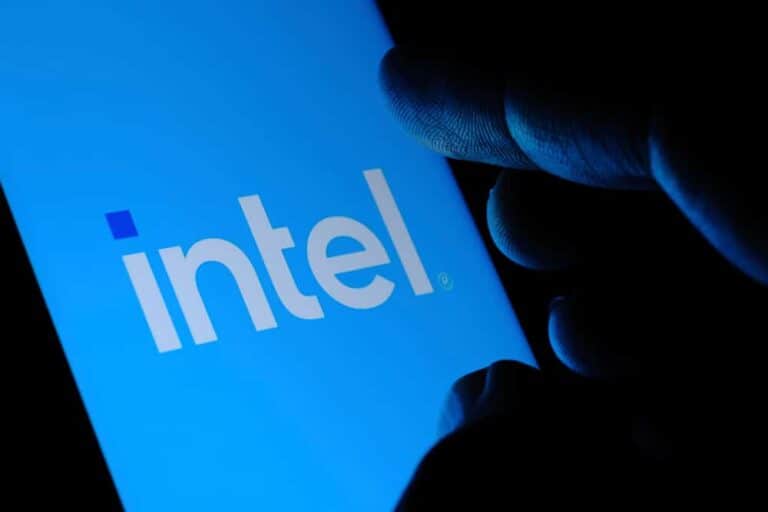Intel is deploying EUV technology to build processors at scale for the first time. In Leixlip, Ireland, it has begun the mass production of Meteor Lake laptop chips at its Fab 34 facility. The equipment needed for this is being supplied exclusively by the Dutch company ASML. As it launches the new fab, Intel reaches a milestone that rival TSMC already achieved in 2019. In any case, the ambitions of the American company are high: by 2025, they hope to have the most advanced production process globally.
For the first time, Intel will produce chips on Intel 4, the smallest node it currently has available. Meteor Lake is going to provide many other firsts: it will be Intel’s first chip family made with chiplets. Instead of one large piece of silicon, the processors are made up of several ‘islands’ that are modular and can be mixed and matched to construct different SKUs for end consumers. AMD and Qualcomm have long offered CPUs and SoCs with such a structure. Another debutant is the NPU: an AI-focused coprocessor that is catered to running AI tasks locally within Windows.
Also read: An AI PC revolution: Dell and Intel see it, AMD not yet
European plans
EVP and chief global operations officer at Intel Keyvan Esfarjani stressed that Ireland is essential for the company’s global chip manufacturing. On top of that, planned plants in Magdeburg (Germany) and Wrocław (Poland) will shape Intel’s European ambitions in the near future.
Intel thus looks set to make a major contribution to European plans to increase its own chip production. With the EU Chips Act, the political bloc hopes to double its market share in this area, from 10 to 20 percent. According to CEO Pat Gelsinger, Ireland has always been important to the chip giant’s long-term strategy: “And today’s opening of Fab 34 contributes to the EU’s goal of creating a more resilient and sustainable semiconductor supply chain.”
ASML machines
ASML’s EUV machines make the new Intel manufacturing possible. EUV lithography is the most advanced technique for producing computer chips. Each machine is over 3.5 meters high and weighs 180 tons. Because of the constant miniturization of manufacturing processes, it is necessary to use increasingly precise lasers to build the structure of new chips. The EUV scanners are extremely accurate: they could theoretically target a space the size of a thumb on the moon from Earth. TSMC started mass production of processors in 2019 using ASML equipment.
However, these EUV machines are not where Intel’s plans end. High-NA EUV scanners are the next evolution in the chain of chip-making machines, which ASML will also make. Intel has a contract to be the first to work on these newer machines.
